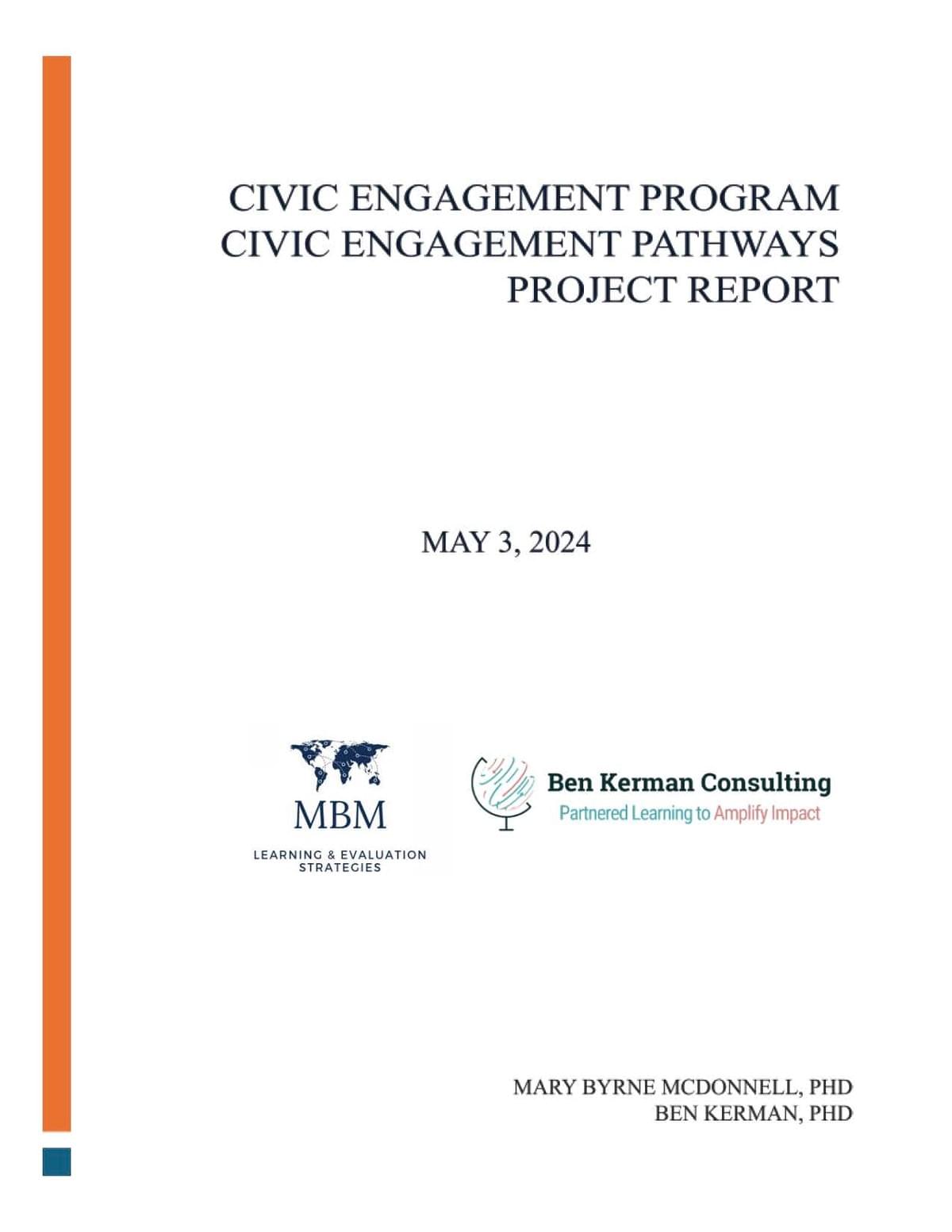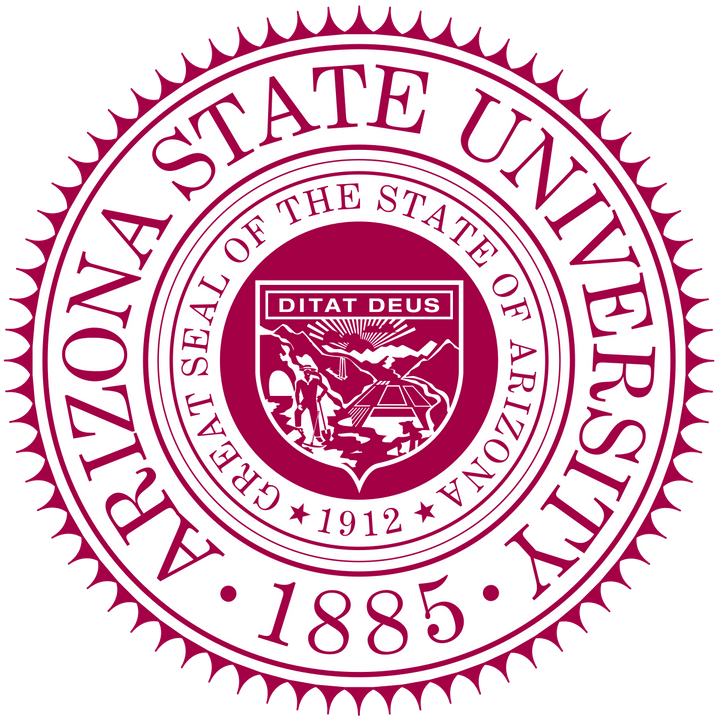

Learning & Evaluation Strategies
Supporting organizations, programs and the people who lead them.
What we do
MBM Strategies applies qualitative and quantitative social science research methods and concepts to understanding the conditions under which foundation, government and NGO interventions are most effective. We use those insights, in partnership with donors and grantees, to improve organizational, programmatic and individual efficiency, effectiveness and impact. An innovative set of tools developed over more than a decade underpins our work.

Institutional Research

Organizational & Programmatic Development

Not-for-Profit Advising

Strategic Learning & Evaluation

DiSC Profiling: development tools for productivity, teamwork and communication

Certified DiSC Trainer
DiSC Case Study
Featuring:
Organizational Histories
Dr. McDonnell researched and wrote the history of the Atlantic Philanthropies final years as one of the largest philanthropies of our time wound down operations while ramping up its final big bet grants. The book, published in 2021, brings to life the challenges of limited life foundations and the founding narratives of Atlantic's final big bets on human capital fellowship programs, The Atlantic Fellows. She journeyed alongside the foundation and the fledgling programs to listen, watch, chronicle, synthesize and make sense of the process. The heart of the project was 37 in-depth oral historical interviews with board members, executives, founders and program directors conducted in the final year of Atlantic's life in consort with historic archival review. Dr. McDonnell developed the narrative, visual, and historic elements, and project-managed creative & editorial teams to complete the product.
Featuring:
Person-Centered Awards Landscaping Project
The Person-Centered Awards Landscaping Project Report builds on thoughtful interviews with these organizations and with staff at the Moore Foundation who implement person-centered awards. Drs. McDonnell and Kerman were able to synthesize and identify key impactful and promising approaches to strengthening and evaluating the outcomes and impact of person-centered awards, including conditions that optimize success such as:
- Theory of change. Ensure that the development phase begins with clarity on vision, purposes, values, and goals, and that program activities and expected outcomes are well matched to reflect the vision and achieve the goals.
- Fit to purpose. Align desired characteristics of applicants for a particular person-centered award and grantee selection with the program goals and design.
- Assess progress and impact. Reflect on and evaluate the awards to understand which outcome and goals are being achieved and why or why not. This has direct implications for operationalizing and improving the program and demonstrating its value.
Featuring:
Civic Engagement Pathways
While this report examines a particular undergraduate Civic Engagement Program through semi structured interviews with student participants, the relevance to broader audiences is in the insights it provides into the short term and cumulative impact on students’ intellectual and personal development of their participation in co-curricular and extracurricular civic engagement activities. While this sample is small, the impacts students describe may be useful in considering the value of including civic engagement as part of the undergraduate experience.
Beyond the capacity to apply new skills and knowledge confidently and consistently, the impacts described by interviewees include improved overall self-confidence, self-awareness, and capacity to understand, value and engage constructively with diverse perspectives. As a result of learning how to engage meaningfully with communities and observing the positive results of their work for communities they worked with, they noted an enhanced sense of well-being and satisfaction with student life and developing more respectful and understanding attitudes and behaviors towards peers and the communities they were involved with. They suggested that the skills gained and sense of belonging and well-being they experienced also impacted their academic success. In discussing their growth as leaders, they described becoming more systematic, more knowledgeable about the root causes of social issues, more team oriented, more driven by community definitions of problems and solutions and committed to leading change through a civically active life.
Leadership

Mary Byrne McDonnell
Principal
Mary McDonnell has a PhD in history and a master’s degree in international affairs from Columbia University. She joined the Social Science Research Council in 1986, where she became founding director of the Abe Fellowship and Vietnam Programs. While developing fellowships and Asia-focused work, she also served as the Council’s Executive Director. Most recently she led the development of a new genre of programming that applies social science methods and concepts to understand the conditions under which interventions by foundations, governments and NGOs succeed or fail. She used this learning in partnership with donors and their grantees to improve the work of organizations, programs and those who lead them. She recently left her position as Senior Vice President for Strategic Learning to found MBM Strategies devoted to bringing evidence to organizational and programmatic learning for improvement.
McDonnell serves on the Institute of International Education’s (IIE) advisory panel for the long term tracking and evaluation study of the Ford Foundation’s 10 year social justice intervention, the International Fellowships Program. She has served as the chair of the Board of Trustees of the School for Social Development and Public Policy at Beijing Normal University and is a founding member of the board of Resources for Health Equity.
Publications:
Atlantic Fellows: Our Founding Story
July 2021
The SAGE Handbook of Research Management
Editors: Robert Dingwall and Mary Byrne McDonnell, Sage Press UK, January 2015 (40 chapters)
Helmet Day! Structural Intervention and strategic learning in Vietnam, Structural approaches to public health, EDs.
Richard Parker and Marni Sommer, Routledge, March 2013.
Toward a Globally Connected Public Social Science, chapter inTessa Morris-Suzuki, editor, Contradictions of Globalization, Tokyo, international House of Japan. 2008
How can we serve your organization?
Work with MBM Learning & Evaluation Strategies

Contact Us
646-397-5360
mary@mbmlearning.com
© MBM Strategies 2019
Web design by Culpeper Creative













